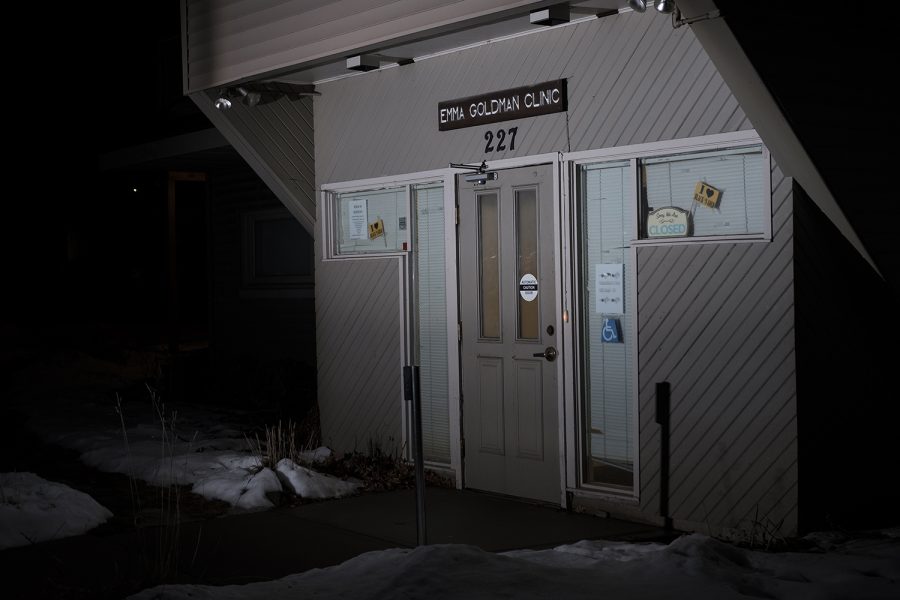Woods: Access to reproductive health care should be barrier-free
The Emma Goldman clinic in Iowa City provides respectful, client-centered health services.
The Emma Goldman clinic is seen on Wednesday, Feb. 2018.
August 21, 2018
Where can anybody easily access reproductive health services in central Iowa City? If you are a gender-nonconforming, LGBTQ, or heterosexual and have never been to a sexual-health clinic, this may be a question you find yourself asking. You’ll find the Emma Goldman Clinic a few blocks north of downtown, 227 N. Dubuque St. The clinic looks kind of like a house, and inside you’ll find a welcoming staff and an atmosphere without presumption or prejudgment.
Recently, I spent an hour with Emma Goldman’s codirector, Francine Thompson, to learn more about how this local clinic works to “ensure access to reproductive services for people who are marginalized and underrepresented.”
I wanted to learn about Emma Goldman’s services, and I was also interested in the clinic’s background and philosophies. The biggest takeaway from this interview was (spoiler alert) that it has always been supportive of a person’s right to access reproductive health-care services and resources with minimal barriers — a concept that other organizations may still struggle with or may have only recently embraced. Thompson said, “[Emma Goldman] was the first abortion clinic in Iowa … having always provided abortion services since they became legal in Iowa,” and the clinic “is now celebrating 45 years of service.”
Thompson said the clinic was founded in 1973 on feminist ideals to support quality reproductive health care and education — the nonprofit strives to “provide respectful, client-centered health care.” I also got the impression that the clinic does a pretty good job at embracing diversity and practicing inclusiveness.
Thompson said all staff at Emma Goldman are “hired for values and trained for skills” so that they can all practice cultural humility and cultural competency with their service to their clients. The clinic’s mission includes “the larger ideals of feminist philosophy: political, economic, and social equality,” and Thompson noted that the clinic is dedicated to “serving those who have experienced past hurts and dismissals from providers in the past … especially for marginalized populations.”
Did you know that approximately 7 percent of Emma Goldman’s services are for people who are transgender?
Thompson said the clinic “casts a pretty wide net for many services,” including hormone therapy for transgender clients. Many transgender people seek quality care at Emma Goldman from rural Iowa, western Iowa, and even northern Missouri.
Thompson also noted the We Testify movement. If you go to the We Testify website, you will read that it is “dedicated to increasing the spectrum of abortion storytellers in the public sphere,” including those of color, those from rural and conservative communities, and those who identify as LGBTQ.
Thompson reminded me that all of Emma Goldman’s services are available for everyone — transgender, cis-gender, gender-nonconforming, etc. If you have a cervix and are more than 21 years old, it’s time for regular Pap (cervical cancer) screens. If you have chest or breast tissue and are over the age of 50, get regular chest or breast screenings to avoid cancer. If you have a uterus and want to avoid getting pregnant, or if you are pregnant, Emma Goldman’s well-trained, caring staff can be there with you as you explore your options.
The clinic is a neighborly, welcoming place that has been a quiet, yet influential, role model for larger health-care systems.
When I listened to Thompson describe the clinic’s always encouraging “body autonomy to enable clients to decide what’s best for them,” I realized that this health-care outpost — here in our own backyard, so to speak — has provided community health services in Iowa City long before “community health” was a popular buzz phrase.
















